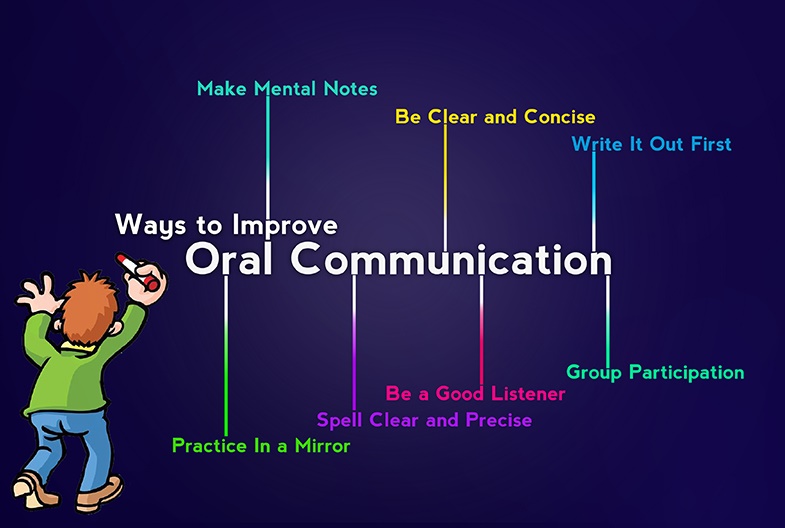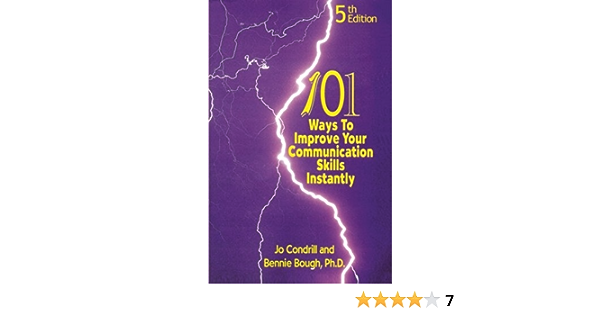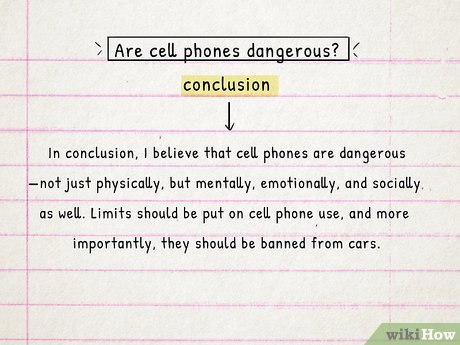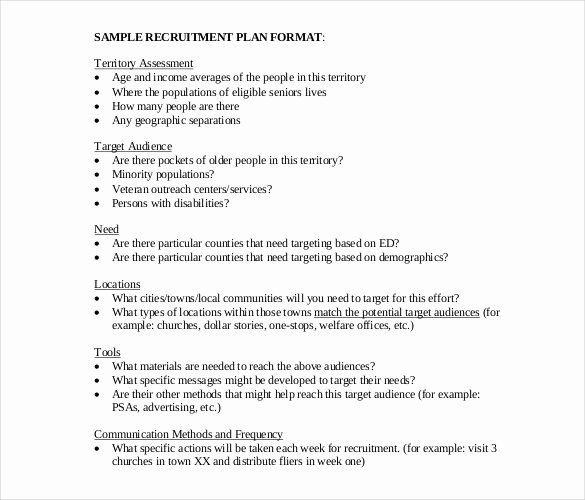Steps to Improve Communication Skills
Improving communication skills involves active listening, practicing empathy, and cultivating a positive mindset. Effective communication is an essential skill in both personal and professional relationships.
It allows us to convey thoughts, ideas, and emotions clearly and accurately, fostering understanding and connection. However, communication skills are not innate talents; they can be developed and refined through conscious effort and practice. By focusing on active listening, truly understanding others’ perspectives, and adopting a positive mindset, anyone can improve their communication skills.
This article will provide practical steps and actionable tips to enhance your ability to communicate effectively in both verbal and written forms. Whether you desire to strengthen your relationships, advance in your career, or simply be better understood, these strategies will help you become a more effective communicator.
Importance Of Improving Communication Skills
Improving communication skills is crucial for effective interaction in various aspects of life. By taking steps such as active listening, practicing empathy, and adapting to different communication styles, individuals can enhance their ability to convey ideas and understand others, leading to better relationships and success in personal and professional contexts.
Effective communication is a crucial skillset that holds immense significance in both personal and professional spheres. Mastering this art can unlock countless opportunities for growth, development, and success. Whether it’s building strong relationships or advancing in careers, the ability to communicate effectively plays a pivotal role.
In this section, we will explore the importance of improving communication skills in personal and professional life and how it can benefit relationships and careers.
Why Is Communication Important In Personal And Professional Life?
Communication serves as the foundation for establishing meaningful connections, resolving conflicts, and achieving mutual understanding. Here are some reasons why effective communication is essential in both personal and professional life:
- Expressing thoughts and ideas: Clear communication allows individuals to articulate their thoughts and ideas effectively, ensuring that their message is understood without confusion or misinterpretation.
- Building strong relationships: Good communication fosters healthy relationships by promoting trust, empathy, and understanding. It enables individuals to connect on a deeper level and develop mutual respect.
- Resolving conflicts: Effective communication plays a crucial role in conflict resolution. It allows individuals to express their concerns, listen actively, and find constructive solutions, thereby promoting harmony and preventing misunderstandings.
- Enhancing teamwork: In professional settings, effective communication is vital for collaboration and teamwork. Clear and open communication enables team members to share information, coordinate efforts, and achieve common goals.
- Facilitating decision-making: Well-developed communication skills aid in gathering and conveying information, enabling individuals to make informed decisions based on accurate data and thoughtful discussions.
How Can Effective Communication Benefit Relationships And Careers?
Mastering the art of effective communication can have significant positive impacts on both relationships and careers. Below are some ways in which developing strong communication skills can be beneficial:
- Building trust: Clear and open communication fosters trust in relationships, both personal and professional. It creates an atmosphere where individuals feel comfortable sharing their thoughts, concerns, and aspirations, thus strengthening the bond between them.
- Resolving conflicts: Effective communication allows for open dialogue and understanding, which is crucial in resolving conflicts and preventing misunderstandings. Individuals with good communication skills can approach conflicts with empathy, actively listen to others’ perspectives, and find common ground for resolution.
- Advancing in careers: Communication skills are highly valued in the professional world. Individuals who can express themselves clearly and concisely tend to make a positive impression on employers and colleagues. Effective communication enhances one’s ability to convey ideas, contribute to discussions, and present oneself confidently, thus opening doors to career growth and advancement.
- Improving leadership abilities: Strong communication skills are essential for effective leadership. Leaders who can articulate their vision, inspire teams, and provide clear instructions create an environment of motivation and productivity. Effective communication enables leaders to build trust, delegate tasks, and guide their teams towards success.
The significance of improving communication skills cannot be overstated. The ability to express thoughts, build relationships, resolve conflicts, and thrive professionally depends on effective communication. By enhancing communication skills, individuals can unlock a world of opportunities, leading to personal growth, successful relationships, and a flourishing career.
Understanding The Barriers To Effective Communication
Improve your communication skills by understanding and overcoming the barriers that hinder effective communication. Explore steps to enhance your ability to convey messages clearly and engage in meaningful conversations.
Effective communication is an essential skill in both personal and professional settings. It allows us to express ourselves, share ideas, and connect with others. However, there are certain barriers that can hinder effective communication. In this section, we will explore common barriers to communication and discuss strategies to overcome them.
Identifying Common Barriers To Communication:
- Distractions: External factors such as noise, interruptions, or visual distractions can disrupt the flow of communication and make it difficult to fully understand each other.
- Lack of attention: Sometimes, individuals may be preoccupied with their own thoughts or concerns and may not fully listen to what others are saying. This can lead to misunderstandings and miscommunication.
- Language barriers: When individuals speak different languages or have different levels of proficiency in a shared language, it can be challenging to effectively convey thoughts and ideas.
- Cultural differences: Cultural norms and values can impact communication styles and expectations. Differences in nonverbal cues, gestures, and expressions can lead to misunderstandings.
- Physical barriers: Physical barriers such as distance, obstructions, or poor acoustics can impede effective communication, making it difficult for messages to be heard or understood clearly.
- Emotional barriers: Strong emotions like anger, fear, or stress can hinder effective communication by clouding our ability to listen and respond objectively.
Overcoming Language And Cultural Barriers:
- Use simple and clear language: When communicating with individuals who have limited proficiency in a shared language, it is important to use simple and concise language, avoiding jargon or complex terms.
- Seek clarification: If there is a language barrier, do not hesitate to ask for clarification or for the message to be repeated. Paraphrasing and summarizing can also help ensure understanding.
- Embrace cultural diversity: Be open-minded and respectful of cultural differences. Learn about different customs, traditions, and communication styles, and adapt your approach accordingly.
- Use visual aids: Visual aids such as diagrams, pictures, or demonstrations can help clarify information and transcend language barriers.
- Practice active listening: Pay close attention to both verbal and nonverbal cues of the speaker. Avoid making assumptions or jumping to conclusions based on cultural differences.
Addressing Communication Apprehension And Fear:
- Build self-confidence: Recognize and challenge your own fears and anxieties about communication. Practice and prepare before important conversations or presentations to boost your confidence.
- Seek support: Share your concerns with a trusted friend, mentor, or therapist who can provide guidance and encouragement. Sometimes, just talking about our fears can help alleviate them.
- Practice mindfulness: Engage in relaxation techniques or mindfulness exercises to calm your mind and reduce anxiety before engaging in communication.
- Focus on the message, not the audience: Instead of worrying about how others might perceive you, focus on delivering your message clearly and effectively.
- Start with smaller steps: Gradually expose yourself to situations that make you uncomfortable. Practice communicating in low-pressure environments and gradually work your way up to more challenging situations.
Understanding the barriers to effective communication is the first step towards improving our skills. By identifying and addressing these barriers, we can enhance our ability to connect, understand, and be understood.
Developing Active Listening Skills
Improve your communication skills by developing active listening skills. This includes giving your full attention, asking clarifying questions, and paraphrasing to show understanding.
How Active Listening Can Enhance Communication:
- Active listening is a crucial skill that can significantly enhance your communication abilities. By actively engaging in the conversation and fully comprehending what the other person is saying, you can foster better understanding, build stronger relationships, and minimize misunderstandings.
- When you practice active listening, you give your complete attention to the speaker, showing that you value their thoughts and opinions. This level of engagement not only helps create a more open and honest dialogue but also promotes empathy and connection.
- Active listening allows you to grasp the underlying message and emotions behind the words. By paying attention to non-verbal cues, such as body language and tone of voice, you can better understand the speaker’s true meaning. This deeper level of understanding can lead to more effective communication and collaboration.
Techniques For Improving Listening Skills:
- Maintain eye contact: Looking directly at the speaker demonstrates your interest and involvement in the conversation.
- Avoid distractions: Minimize external distractions, such as your phone or other devices, to focus solely on the speaker.
- Practice empathy: Put yourself in the speaker’s shoes and try to understand their perspective and emotions.
- Avoid interrupting: Allow the speaker to express their thoughts and complete their sentences before responding.
- Paraphrase and clarify: Summarize the speaker’s main points in your own words to ensure mutual understanding.
- Use active body language: Nodding, smiling, and leaning in slightly can show your engagement and encourage the speaker to continue sharing.
Tips For Staying Engaged And Focused During Conversations:
- Clear your mind: Before entering a conversation, take a moment to clear your mind of any distractions or preoccupations.
- Be present: Concentrate on the present moment and avoid thinking about what you will say next.
- Control your internal voice: Minimize the urge to formulate responses or judgments while the speaker is talking.
- Avoid interrupting: Wait for natural pauses or the speaker to finish their thoughts before interjecting.
- Ask questions: Seek clarification or dive deeper into the topic by asking relevant questions.
- Take notes: Jotting down key points can help you stay focused and retain information.
By developing active listening skills, you can vastly improve your communication abilities. Engaging in the conversation fully, employing various techniques to enhance your listening, and staying focused will all contribute to more meaningful and effective interactions. So, remember to actively listen, empathize, and connect with the speaker to foster better communication in all aspects of life.
Enhancing Nonverbal Communication
Enhancing nonverbal communication is crucial for improving overall communication skills. By following these steps, individuals can effectively express themselves through body language, gestures, and facial expressions, leading to more effective and impactful interactions.
The Impact Of Body Language And Facial Expressions:
- Body language and facial expressions play a crucial role in communication.
- They can convey emotions, attitudes, and intentions without the need for words.
- Certain gestures and postures can create a friendly and approachable image.
- Facial expressions such as smiling, nodding, or raising eyebrows can indicate interest and engagement.
- Maintaining an open and relaxed body posture can foster trust and receptiveness.
Improving Eye Contact And Gestures:
- Maintaining good eye contact is important as it demonstrates attentiveness and interest.
- By looking directly at the person speaking, you show that you are actively listening.
- Avoiding excessive or unbroken eye contact is equally important to prevent discomfort.
- Appropriate gestures can reinforce your message and help convey meaning.
- Use gestures sparingly and naturally, ensuring they align with the spoken words.
Utilizing Appropriate Tones And Vocal Cues:
- The way you speak influences the message you convey and how it is received.
- Choose a tone that matches the context and conveys the intended emotions.
- A friendly and engaging tone can make your communication more effective.
- Vary your voice pitch and pace to keep the listener engaged and interested.
- Pay attention to vocal cues such as volume, emphasis, and intonation to convey meaning accurately.
Remember, effective nonverbal communication complements your verbal message and enhances overall understanding. Practice these techniques to improve your communication skills and make a positive impact in various personal and professional interactions.
Mastering Verbal Communication
Mastering Verbal Communication is a crucial skill in today’s world. By following these steps to improve communication skills, you can enhance your ability to convey ideas effectively and build stronger relationships with others.
Effective verbal communication is crucial in various aspects of our lives, be it personal or professional. It allows us to express ourselves clearly, build strong relationships, and convey our ideas with confidence. Mastering verbal communication skills not only enhances our overall communication abilities but also boosts our self-confidence and credibility.
In this section, we will discuss three key elements to master verbal communication: choosing words wisely, using effective questioning techniques, and communicating with confidence and assertiveness.
Choosing Words Wisely For Clear And Concise Communication
Clear and concise communication is essential to ensure that our ideas are effectively conveyed and understood by others. By choosing our words carefully, we can avoid misunderstandings and facilitate smoother conversations. Here are some key strategies to consider:
- Use simple and concise language: Avoid overly complex or technical words that can confuse your audience. Opt for clear and straightforward language that is easily comprehensible.
- Avoid jargon or industry-specific terms: While jargon may be appropriate in certain professional settings, it can hinder effective communication outside those contexts. Use language that is suitable for your audience and facilitates understanding.
- Be mindful of tone and context: Adjust your language based on the situation and the person you are speaking to. Pay attention to your tone of voice, pitch, and volume to convey your message effectively.
- Focus on active voice: Use active voice sentences as they tend to be more engaging and direct. This format allows for clearer communication, rather than using passive voice which can make sentences more wordy and less impactful.
Using Effective Questioning Techniques
Asking effective questions not only helps us gather information but also encourages open and meaningful dialogue. Here are some techniques to improve your questioning skills:
- Use open-ended questions: Open-ended questions promote discussion and encourage the other person to provide detailed answers. Instead of asking questions that can be answered with a simple ‘yes’ or ‘no,’ ask questions that prompt thoughtful responses.
- Listen actively: Pay close attention to the responses and take note of any relevant information or follow-up questions. Active listening allows for more engaging conversations and helps maintain a deeper level of understanding.
- Use probing questions: Probing questions allow you to delve deeper into a topic and gather more detailed information. They demonstrate your interest and encourage the other person to provide additional insights.
- Clarify and paraphrase: To ensure understanding, repeat or paraphrase what the other person has said. This not only shows that you are actively engaged but also helps to avoid miscommunication or misunderstandings.
Communicating With Confidence And Assertiveness
Confidence and assertiveness play a vital role in effective verbal communication. They help convey our message with clarity and conviction, leaving a lasting impression. Here are some tips to communicate with confidence and assertiveness:
- Maintain eye contact: Establish and maintain eye contact with the person you are speaking to. It demonstrates confidence and shows that you are fully engaged in the conversation.
- Speak clearly and at a moderate pace: Articulate your words clearly, and speak at a pace that allows your audience to follow along without feeling rushed or overwhelmed.
- Use positive body language: Stand or sit up straight, with your shoulders back and a relaxed stance. Avoid fidgeting or crossing your arms, as it can signal defensiveness or discomfort.
- Be proactive: Take initiative in conversations, express your thoughts and ideas, and be an active participant. Avoid being passive or constantly seeking validation from others.
- Practice active self-affirmation: Boost your confidence by practicing positive self-talk and acknowledging your strengths. Remind yourself of your abilities and the value you bring to the conversation.
To become a master of verbal communication, practice these techniques consistently. The more you integrate them into your daily interactions, the more natural and effective your communication skills will become. Remember, effective verbal communication is a key asset in both personal and professional environments, and mastering it will undoubtedly bring you greater success and fulfillment.
Cultivating Empathy And Emotional Intelligence
Improve your communication skills by cultivating empathy and emotional intelligence. Enhance your ability to connect with others, listen actively, and understand different perspectives through practical steps and exercises.
Understanding The Importance Of Empathy In Communication
- Empathy plays a crucial role in effective communication, fostering understanding and connection between individuals.
- It involves putting oneself in someone else’s shoes and trying to understand their feelings and perspective.
- By practicing empathy, we can create a safe and supportive environment for open and honest communication.
- Empathy helps us develop better relationships, resolve conflicts, and foster trust.
Developing Emotional Intelligence For Better Understanding
- Emotional intelligence enables us to recognize and manage our own emotions and also understand the emotions of others.
- It involves self-awareness, self-regulation, empathy, and social skills.
- By developing emotional intelligence, we can navigate conversations more effectively and build stronger connections with others.
- Emotional intelligence helps us to be more responsive, empathetic, and considerate in our interactions.
Strategies For Expressing Empathy In Conversations
- Listen actively: Give your full attention to the speaker, maintain eye contact, and show genuine interest in what they are saying.
- Validate feelings: Acknowledge and validate the emotions expressed by the speaker, letting them know that their feelings are understood and accepted.
- Use open-ended questions: Promote further discussion and understanding by asking open-ended questions that encourage the speaker to express themselves.
- Reflective listening: Summarize and reflect back on what the speaker has said to demonstrate that you have understood their message.
- Offer support: Be compassionate and offer support or assistance if needed, showing that you genuinely care about the speaker’s well-being.
- Avoid judgment: Suspend judgment and be non-judgmental in your responses, creating a safe space for open expression.
By cultivating empathy and emotional intelligence, we can enhance our communication skills and build more meaningful connections with others. These qualities allow us to understand different perspectives, validate feelings, and show genuine support. Implementing strategies such as active listening, using open-ended questions, and reflective listening can further improve our ability to express empathy in conversations.
Remember, practicing empathy involves both verbal and non-verbal cues, so be attentive and responsive, promoting better understanding and collaboration in all your interactions.
Effective Written Communication
Looking to improve your communication skills? Follow these steps to enhance your written communication: practice brevity, use a wide range of phrases, and write in an active voice. Focus on creating unique, easy-to-understand content that is SEO-friendly and plagiarism-free. No need for overused words or lengthy conclusions.
The Significance Of Well-Written Emails, Memos, And Reports
- Clear and well-written communication is essential in professional settings, especially when it comes to emails, memos, and reports. These forms of written communication play a crucial role in conveying information effectively and efficiently.
- Well-written emails help in maintaining professional correspondence, whether it’s within your team, with clients, or with stakeholders. They ensure that the intended message is clearly understood and eliminate any confusion that may arise from poorly written emails.
- Memos, on the other hand, are concise and formal documents used for internal communication within an organization. Well-written memos help convey important information, make announcements, provide updates, or request specific actions from colleagues or team members.
- Reports are more comprehensive and often detail-oriented documents that provide insights, analysis, or summaries of specific topics. Well-written reports are crucial for decision-making, as they provide accurate information and analysis in a logical manner.
Tips For Organizing Information And Structuring Written Content
- Before starting to write, it’s crucial to plan and organize your thoughts effectively. By following these tips, you can ensure that your written content is well-structured and easy to understand:
- Start by outlining the key points or main ideas you want to convey. This will help you stay focused and maintain a logical flow throughout your writing.
- Use headings and subheadings to break down your content into sections. This not only makes it easier for readers to navigate and find specific information but also helps you maintain a clear structure.
- Use bullet points or numbered lists to present information in a concise and organized manner. This helps readers quickly grasp important points or key takeaways.
- Create paragraphs that are focused on one main idea or topic. Keep the content within each paragraph coherent and related to the main topic of that paragraph.
- Use transition words and phrases to guide readers smoothly from one idea or point to the next. This helps maintain a logical progression and improves overall coherence.
Proofreading And Editing Techniques For Error-Free Communication
- Even the best writers make mistakes. To ensure error-free communication, it’s essential to thoroughly proofread and edit your written content. Here are some techniques to help you in the process:
- Take a break before proofreading. This allows you to approach your content with fresh eyes and increases the chances of identifying errors or areas that need improvement.
- Read your content aloud. This helps you catch grammatical errors, awkward phrasings, and inconsistencies in the flow of your writing.
- Use spell check and grammar check tools to identify and correct any spelling or grammatical errors. However, don’t solely rely on these tools as they may not catch all mistakes.
- Look for repetitive words or phrases and try to find alternatives to improve the overall readability of your content.
- Pay attention to punctuation and formatting. Make sure your content has proper punctuation, consistent formatting, and is visually appealing.
- Review your content for clarity and conciseness. Eliminate any unnecessary words or phrases and ensure that your message is communicated effectively.
By following these tips, you can enhance your written communication skills and ensure that your emails, memos, and reports are well-written, organized, and error-free. Remember, clear and effective written communication is a crucial skill to succeed in today’s professional world.
Adapting Communication Styles
Improve your communication skills by adapting your communication style. Learn effective strategies to enhance your ability to connect with others and convey your message clearly and confidently.
Recognizing Different Communication Styles
- Communication styles can vary widely from person to person, and it’s important to recognize and understand these differences in order to effectively communicate.
- Different communication styles can include assertiveness, expressiveness, and responsiveness, among others.
- By recognizing and understanding these various styles, you can tailor your own communication approach to better connect and engage with others.
Adapting Communication To Suit Diverse Audiences
- Adapting your communication style to suit diverse audiences is crucial for effective communication.
- Some strategies to consider include:
- Using clear and concise language: Ensure your message is easily understood by avoiding jargon or complex terms.
- Being mindful of cultural differences: Respect cultural norms and adapt your communication approach accordingly.
- Active listening: Pay attention to verbal and non-verbal cues to better understand your audience’s needs and preferences.
- Flexibility: Be willing to adjust your communication style as needed based on the individual or group you are communicating with.
Strategies For Effective Communication In Professional Settings
- Effective communication is fundamental in professional settings to foster collaboration, build relationships, and achieve common goals.
- Here are some strategies to help improve your communication skills in the workplace:
- Practice active listening: Give your full attention, ask clarifying questions, and paraphrase to ensure understanding.
- Use appropriate body language: Maintain eye contact, nod in agreement, and use open and confident gestures.
- Be mindful of tone and clarity: Communicate clearly, using a friendly and professional tone that avoids ambiguity.
- Tailor your message: Adapt your communication style to suit the audience, their knowledge, and their level of familiarity with the topic.
- Seek feedback: Regularly seek feedback from colleagues or supervisors to continuously improve your communication skills.
Remember, effective communication involves not only conveying your message clearly, but also understanding and adapting to the communication styles of others. By recognizing and adapting to these styles, you can enhance your communication skills and build stronger connections in both personal and professional settings.
Conflict Resolution And Constructive Feedback
Improve your communication skills with effective conflict resolution and constructive feedback. Learn practical steps to foster better understanding and promote a positive work environment.
Approaches To Resolving Conflicts Through Effective Communication:
- Active listening: Paying full attention to the person speaking, maintaining eye contact, and nodding or using other gestures to show understanding.
- Empathy: Trying to understand the other person’s perspective and emotions, and expressing empathy towards their feelings.
- Clarifying questions: Asking questions to ensure a clear understanding of the issue and avoid assumptions.
- Remaining calm: Maintaining a calm and composed demeanor during conflict situations to promote a peaceful resolution.
- Finding common ground: Identifying shared interests or goals to establish a basis for agreement and collaboration.
- Compromise: Being open to finding a middle ground solution that satisfies both parties’ needs.
- Reflective statements: Summarizing the other person’s feelings and thoughts to show that their perspective is valued.
Providing Constructive Feedback To Promote Growth And Improvement:
- Specificity: Clearly stating the behavior or action being addressed to ensure clarity.
- Timeliness: Providing feedback as close to the observed behavior as possible to make it more relevant and actionable.
- Balance: Including both positive and negative aspects in the feedback to create a well-rounded assessment.
- Focus on behavior, not the individual: Addressing actions and behaviors rather than attacking the person’s character or personality.
- Suggesting improvement: Offering suggestions or strategies for improvement to help the individual grow and develop.
- Establishing goals: Collaborating with the person to set goals for improvement and measuring progress over time.
- Encouragement: Recognizing and reinforcing positive efforts and achievements to motivate continued growth.
Techniques For Delivering Feedback In A Positive And Supportive Manner:
- Use the “sandwich” approach: Begin with positive feedback, then address areas for improvement, and end with more positive feedback.
- Be specific: Provide specific examples of behaviors or actions that demonstrate the feedback you are giving.
- Use “I” statements: Frame feedback from your perspective, discussing the impact it had on you and avoiding accusatory language.
- Offer solutions: Instead of just pointing out areas of improvement, provide potential solutions or strategies for growth.
- Focus on strengths: Highlight the individual’s strengths and how they can be applied to overcome challenges or improve in certain areas.
- Ensure privacy: Provide feedback in a private and discreet setting to avoid embarrassment or discomfort.
- Follow up: Check in with the individual after giving feedback to see if they have any questions or need further clarification.
Practicing Effective Communication In Various Settings
Discover effective strategies to enhance your communication skills in various settings. Learn the essential steps to improve your ability to convey ideas, listen actively, and establish rapport with others, enabling meaningful connections and successful interactions.
Applying Communication Skills In Personal Relationships
Maintaining strong communication skills is vital for building and nurturing personal relationships. By implementing effective communication techniques, you can foster understanding, trust, and meaningful connections with your loved ones. Here are some ways to apply your communication skills in personal relationships:
- Active Listening: Dedicate your full attention to the person speaking, avoiding distractions and showing genuine interest. Reflect on their words and ask clarifying questions to ensure you understand their perspective.
- Empathy: Put yourself in the shoes of your loved ones and try to understand their feelings and experiences. Empathy helps create a safe and supportive environment for open and honest communication.
- Nonverbal Communication: Pay attention to your body language and facial expressions. Maintain eye contact, use affirmative gestures, and show attentiveness to enhance your communication.
- Emotional Intelligence: Recognize and manage your own emotions, as well as empathize with the emotions of others. This understanding will facilitate more effective communication and help resolve conflicts constructively.
- Assertiveness: Express your thoughts, feelings, and needs clearly and respectfully, ensuring that your voice is heard in the relationship. At the same time, be open to hearing the thoughts and needs of the other person.
Communication Techniques For Successful Teamwork
In a team setting, effective communication is crucial for collaboration, synergy, and achieving common goals. Here are some communication techniques to foster successful teamwork:
- Clear and Concise Messaging: Ensure that your messages are easy to understand and free of ambiguity. Use simple and direct language, avoiding unnecessary jargon or technical terms that may confuse your teammates.
- Active Participation: Engage in active discussions, contributing your ideas, thoughts, and expertise. Be an attentive listener and encourage others to share their viewpoints as well.
- Constructive Feedback: Offer feedback in a constructive manner, focusing on improvement rather than criticism. Be specific, highlighting both strengths and areas for growth, and provide suggestions for enhancement.
- Collaboration Tools: Leverage project management and communication tools, such as project management software or team messaging platforms, to enhance collaboration, keep everyone informed, and facilitate efficient communication.
- Conflict Resolution: When conflicts arise, address them promptly and respectfully. Encourage open dialogue, active listening, and mutual understanding to find mutually beneficial solutions.
Strategies For Effective Public Speaking And Presentations
Public speaking and delivering presentations can be daunting, but with the right strategies, you can convey your message effectively and captivate your audience. Here are some techniques to enhance your public speaking and presentation skills:
- Preparation: Invest time in thoroughly researching your topic and organizing your thoughts. Practice your delivery, ensuring a smooth flow and coherence throughout your speech or presentation.
- Visual Aids: Utilize visual aids, such as slides or props, to enhance your message and engage your audience. Keep them clear, concise, and visually appealing, using graphics, images, or diagrams when appropriate.
- Engaging Body Language: Maintain an open and confident posture, avoid excessive movement or fidgeting, and use appropriate gestures to emphasize key points. Remember to make eye contact with your audience to establish a connection.
- Captivating Storytelling: Weave personal anecdotes or relevant stories into your speech or presentation to make it more relatable and memorable for your audience. Use vivid language and varied vocal tones to evoke emotions and capture attention.
- Practice and Rehearsal: Practice your speech or presentation multiple times before the actual event. This will not only help you become more familiar with your content but also boost your confidence and delivery.
By applying these communication skills in personal relationships, teamwork, and public speaking scenarios, you can enhance your overall ability to effectively convey your message, connect with others, and succeed in various settings.
Continued Growth And Improvement
Take steps to enhance your communication skills for continued growth and improvement. Learn effective strategies to express yourself clearly and confidently, fostering better relationships and opportunities. Mastering communication will empower you to succeed in personal and professional endeavors.
The Importance Of Lifelong Learning In Communication Skills:
- Continuous learning is essential for improving and refining communication skills. It helps individuals stay updated with the latest trends, techniques, and strategies in effective communication.
- Lifelong learning in communication skills allows individuals to adapt to evolving communication styles and preferences, making them more relatable and persuasive in their interactions.
Seeking Feedback And Self-Reflection For Personal Development:
- Actively seeking feedback from others allows individuals to identify areas for improvement in their communication skills. It provides valuable insights and perspectives that can help refine their communication approach.
- Engaging in self-reflection allows individuals to evaluate their own communication habits and identify areas for growth. It promotes personal development and helps individuals become more self-aware.
Resources And Tools For Ongoing Improvement:
- Online courses and programs: Taking advantage of online courses and programs that focus on communication skills can be highly beneficial. These resources often provide structured content and practical exercises to enhance communication abilities.
- Books and publications: Reading books and publications related to effective communication can provide valuable insights and perspectives. They offer a deeper understanding of various communication techniques and strategies.
- Webinars and workshops: Participating in webinars and workshops dedicated to communication skills can provide hands-on learning experiences. These events often include interactive sessions and practical exercises to hone communication abilities.
- Peer support and mentorship: Engaging with peers and seeking mentorship from experienced communicators can offer guidance and support. Learning from those who have mastered effective communication can accelerate personal growth.
By recognizing the importance of lifelong learning, seeking feedback, practicing self-reflection, and utilizing various resources and tools, individuals can continue to improve their communication skills. Embracing a growth mindset and consistently honing their abilities will enable them to communicate more effectively and achieve greater success in both personal and professional relationships.

Credit: jumbodium.com
Frequently Asked Questions Of Steps To Improve Communication Skills
What Are 10 Ways To Improve Communication?
Improve communication with these 10 effective methods: active listening, clear and concise messages, nonverbal cues, ask for feedback, practice empathy, be open-minded, use technology wisely, be mindful of cultural differences, provide regular updates, and resolve conflicts promptly.
What Are The 4 Steps To Improve Communication Skills?
To improve communication skills, follow these 4 steps: 1. Understand the audience and tailor your message accordingly. 2. Practice active listening to show genuine interest in others. 3. Use clear and concise language to avoid confusion. 4. Seek feedback and continuously work on improving your communication skills.
What Is The Best Way To Improve Your Communication Skills?
Practice speaking clearly and actively listen to others. Engage in conversations, join a public speaking group, and read books on effective communication.
What Are The 5 Steps Of Effective Communication?
The five steps of effective communication are: planning, composing, delivering, receiving, and evaluating.
Conclusion
Improving communication skills is vital in both personal and professional contexts. By following the steps outlined in this blog post, you can take the necessary actions to enhance your ability to express yourself effectively. Begin by actively listening to others, as this will help you understand their perspectives and foster better connections.
Practice clear and concise verbal and written communication to ensure your message is understood accurately. Develop your nonverbal communication skills, such as body language and facial expressions, to deliver your message with more impact. Utilize technology and social media platforms to enhance your communication abilities in the digital age.
And finally, constantly seek feedback and apply what you learn to grow and refine your communication skills over time. With consistent effort and dedication, you can become a more confident and effective communicator, ultimately improving your relationships, career prospects, and overall success.




